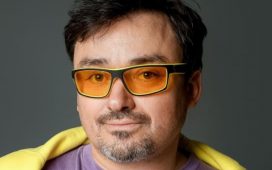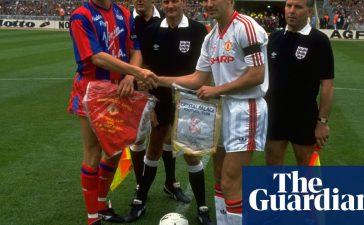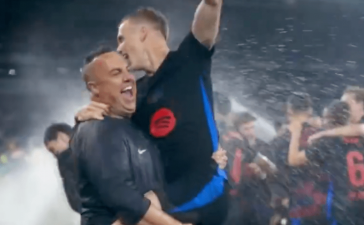What is the founding story of EARLY, and who is behind the idea?
EARLY was originally founded as Timeular by Manuel Bruschi, Thomas Wolf, Christian Zanzotti, and Manuel Zoderer. The product started as a simple way to track time — built for teams who wanted clarity over how they spent their day without the usual hassle of timesheets. Over time, the product grew alongside the way people worked. Hybrid teams, remote work, and constant context switching changed what users needed from us.
That’s why we rebranded to EARLY. It’s the same team and the same product at its core but with a bigger ambition: helping people manage their time better, not just track it. Teams using EARLY track, on average, over 97% of their work hours every week, ensuring they maximize billable time and prevent revenue leakage while enabling more confident, data-driven decisions.
I joined as CEO to lead that next chapter. Scaling EARLY into a product that stays out of the way, supports focus, and gives teams the clarity they need to do their best work.
How does EARLY help people use their time more productively?
The future of time tracking isn’t about control; it’s about freedom.
EARLY gives teams clarity without getting in their way. No micromanaging. No creepy surveillance. Just simple, honest insights that help people work better on their own terms.
Productivity isn’t about doing more. It’s about doing what matters. Ultimately, most tools add noise. We remove it.
What is your approach to fostering time awareness, especially among younger users?
Younger users don’t want to be told how to work and they definitely don’t want to feel like they’re being watched. This is why our approach is simple: give people data, not judgment.
When you can see where your time actually goes without the guilt and the noise, you naturally start to make different choices. It’s about awareness, not optimisation. We’re not trying to turn people into robots. Instead, we’re trying to give them the information they need to protect their time and spend it on things that matter to them.
How does EARLY differ from other time-tracking or productivity tools?
Most time-tracking tools feel like they were built for someone else, usually managers keeping tabs, not people doing the work.
EARLY is built for the person sitting at the desk. It’s simple. I believe the best tools disappear into the background. EARLY helps people notice patterns in how they work without interrupting them or adding more to their plate. It’s about awareness rather than control, as the goal is to help people protect their time, not account for every second of it.
Who exactly is your target audience – students, young professionals, or a broader group?
The focus isn’t really on job titles or industries. It’s about people who care where their time goes, whether that’s freelancers, teams, or anyone just trying to cut through the noise and focus better. It’s less about a specific job title and more about a shared problem.
The feedback loop never stops. We talk to our users daily, from new users figuring things out to long-time users whose needs have evolved. Most of the changes we make come straight from those conversations. What’s working, what’s blocking progress, what feels clunky, and what’s being overlooked.
The goal isn’t to build more features for the sake of it. It’s to keep refining what people use every day and quietly remove everything else.
What does “working productively” mean to you in today’s digital world?
For me, it’s pretty simple. It’s being clear on what matters and having the space to get it done.
Most people aren’t struggling because they’re lazy. They’re struggling because their day is full of noise. Real productivity is about cutting through that and protecting enough space to actually think, focus, and do meaningful work. I believe productivity should feel effortless, not forced.
What is your long-term vision for EARLY?
Ironically, long-term, I want EARLY to be the tool people don’t think about because it just works. If it doesn’t make their life easier, it doesn’t belong in our product or strategy. Everything starts and ends with understanding their needs, frustrations, and behaviors.
It’s not about adding more features. It’s about making things simpler and ensuring EARLY always works to make people’s time better, not harder. We’re building for a future where work feels like it flows and is not a grind.
What is your team particularly proud of?
We’re proud of the culture we’ve built. Achieving this culture starts with giving people ownership. After all, the best ideas come when people feel like they have real skin in the game.
We like to say we’re not a family; we’re running buddies. What keeps us connected is a shared commitment to our goals and values and the belief that anyone can make a real impact if they’re aligned with the mission.
How do you respond to criticism or skepticism towards digital tools for self-organization?
I get the skepticism. With so much tech in our lives, adding another tool can feel like more noise. But the right tools shouldn’t add to the clutter; they should cut through it.
So, when people are unsure, I focus on how EARLY simplifies things. I’m all about creating a time-tracking experience that works for people, not against them. We know work life has changed, and our goal is to make time management easier and more proactive, without the distractions or frustration. It’s not about tracking every minute or task. It’s about giving people clarity on where their time goes so they can make better choices.
What three tips would you give to other leaders?
Embrace change. It’s the only constant. Playing it safe is the biggest risk you can take. Markets move, consumer behavior shifts, and if you don’t evolve, you’ll get left behind.
Focus on retention and engagement, not vanity metrics. If people aren’t sticking around, growth means nothing. Build something that keeps people coming back, and the numbers will follow.
Build in real time. Trends are easy to read, but executing in the moment is where the real work is. If you’re not adapting quickly and making things better as you go, you’re falling behind.
Thank you Mitchell Maynard for the Interview
Statements of the author and the interviewee do not necessarily represent the editors and the publisher opinion again.











